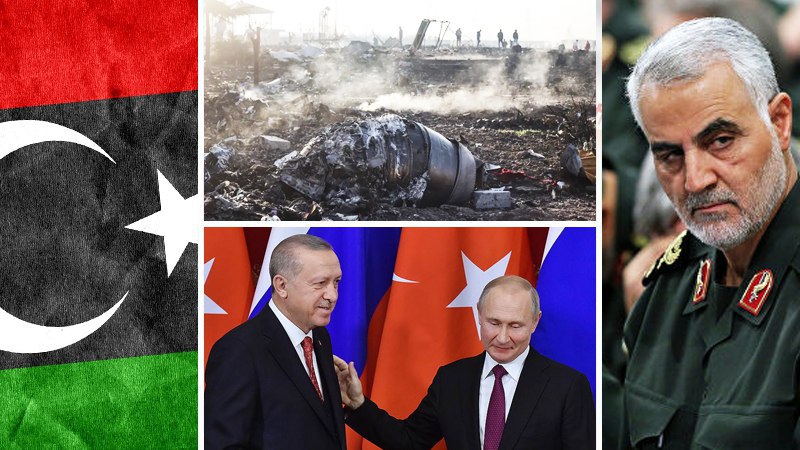Ukrainian plane crash
A passenger plane with 180 passengers on board crashed after taking off from an airport in Tehran on the night of January 8. Later on, Iran admitted that the plane had been shot down by mistake due to the extremely tense standoff with the US.
The head of the Islamic Republic of Iran fully acknowledged that the tragedy took place due to mistaken actions of Iran’s military, the press service of the President of Ukraine reported on Saturday.
The Iranian authorities have established a special working group to resolve the consular issues of the families of victims of the plane crash near Tehran, the Mehr News Agency reported Sunday.
Ukraine and Iran have agreed to start joint decryption of black boxes of the shot down by the Ukrainian International Airlines.
The fact that Iran admitted the mistake speaks to the Tehran’s openness and honesty, especially considering their adequate reaction to the events. Such cases have happened more than once in the international arena: for example, the US destroyed an Iranian passenger plane in 1988, killing 290 people. The difference, however, is that they did not take responsibility for what happened, or apologize. Similar incidents happened within Ukraine itself, in Israel and in several European countries.
ISIS celebrates Soleimani’s death
After the assassination of Iranian General Qassem Solemaini in an American drone attack, tensions between Washington and Tehran increased dramatically. Hardline statements from both sides followed. The American side presented an image of Soleimani as a “terrorist,” despite that he was the one who coordinated some of the most important anti-terrorist operations in the Middle East.
At the same time, ISIS’ reaction is indicative in itself: the terrorist group openly expressed its joy after Soleimani’s death, a position that is further consolidated by the fact that the US is one of the major sponsors of radical groups in the Middle East.
In a statement they said that the general’s assassination was an act of divine intervention that benefitted jihadists.
A ceasefire in Libya
In Libya, after nine months of fighting, the Libyan National Army of the Khalifa Haftar and the Government of National Harmony agreed to a ceasefire that took effect at midnight on Sunday, January 12. Recep Tayyip Erdogan and Vladimir Putin, Presidents of Turkey and Russia, had earlier initiated talks in Moscow to this end.
Ankara and Moscow are the main mediators in the negotiations between the warring parties.
A new meeting of the parties to the Libyan crisis is scheduled for January 18 in Berlin, where further compromise will be sought.
Earlier on, Turkey and Libya signed a maritime agreement which makes it critical for Ankara to maintain stability in the region in order to maintain its so called “Mavi Vatan” maritime strategy.
Meeting between Erdogan and Putin
Turkish President Erdogan and Russian President Vladimir Putin met in Istanbul on January 8. Read about the main outcomes in our article.
The Turkish-Russian initiative for the peaceful settlement of the crisis in Libya is the most important achievement of the meeting. It is important to note that the initiative for the ceasefire was supported by both the GNA and LNA. On January 12, Erdogan held a meeting with Saraj in Istanbul.
Immediately after the meeting between Erdogan and Putin, the US delegation (https://ly.usembassy.gov/u-s-delegation-meets-with-libyan-parties-in-rome/ ) Deputy National Security Advisor for Middle Eastern and North African Affairs Victoria Coates, the Ambassador to Libya Richard Norland and the Deputy Assistant Secretary of State for Maghreb and Egyptian Affairs Henry Wooster had a meeting with both Haftar and Saraj in Rome. This demonstrates the serious concern of Western elites about the Turkish-Russian initiative to resolve the Libyan crisis.
In addition, Turkish Foreign Minister Mevlut Cavusoglu said that Paris was trying to sabotage Ankara’s and Moscow’s initiatives.
“Some neighboring countries in the region are trying to disrupt this cease-fire,” the foreign minister added, accusing France of undermining peace efforts in Libya.

















Leave a Reply